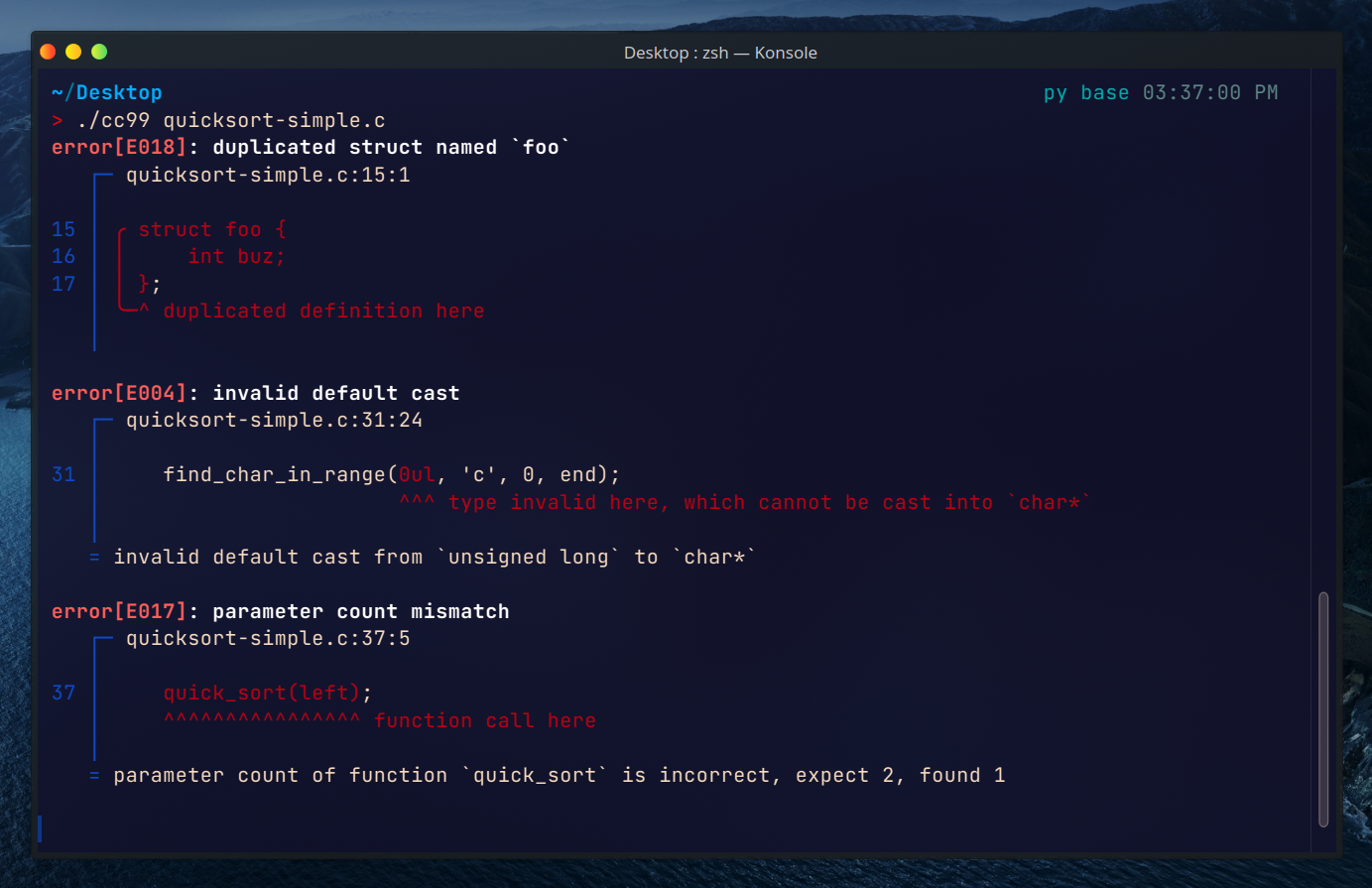oktac 
The compiler of the okta programming language. For more information please visit the official website, and to quickly get okta running refer to the getting started section.
DISCLAIMER: This project, as well as the okta language itself, it's in a very early development state, expect bugs and frequent breaking changes.
How to build
The compiler currently supports the following platform and architecture combinations:
- Linux x86_64 (tested on versions 5.*)
- FreeBSD x86_64 (tested on 13.0-RELEASE)
The first step is to install the dependencies:
- git
- LLVM 12
- clang 12
- Rust 1.57
- libffi
- libxml2
Once you have dependencies installed, you clone the repository:
git clone https://git.sr.ht/~mikelma/oktac
cd oktac
The final step is to build the compiler using rust's cargo. The --release flag isn't mandatory, however it is strongly recommended, as if this flag isn't provided the debug version of oktac will be built instead.
cargo build --release
How to use
This section covers the most common use cases of oktac, for more information run oktac --help.
Compiling okta programs
-
Compiling a single okta file to a binary.
oktac test.ok -o test -
Compiling multiple okta files:
oktac main.ok bar.ok foo.ok
Note that if the
-o(output) flag isn't provided the output binary is saved toa.out.
Useful debugging options
-
Emit the LLVM-IR generated from the source:
./oktac test.ok --emit=llvm-ir
-
Emit the AST of the source code:
oktac main.ok --emit=ast
-
Emit the full AST of the source code (very verbose):
oktac main.ok --emit=ast-dbg
Contributing
If you want to contribute or found a bug, please take a look at the contributing section of the okta website.
License
Oktac is distributed under the terms of the GLPv3 license. See LICENSE for more details.
Special thanks
- @stiviwonder for the alpha testing
- @iiraaiitz for helping with the grammar





